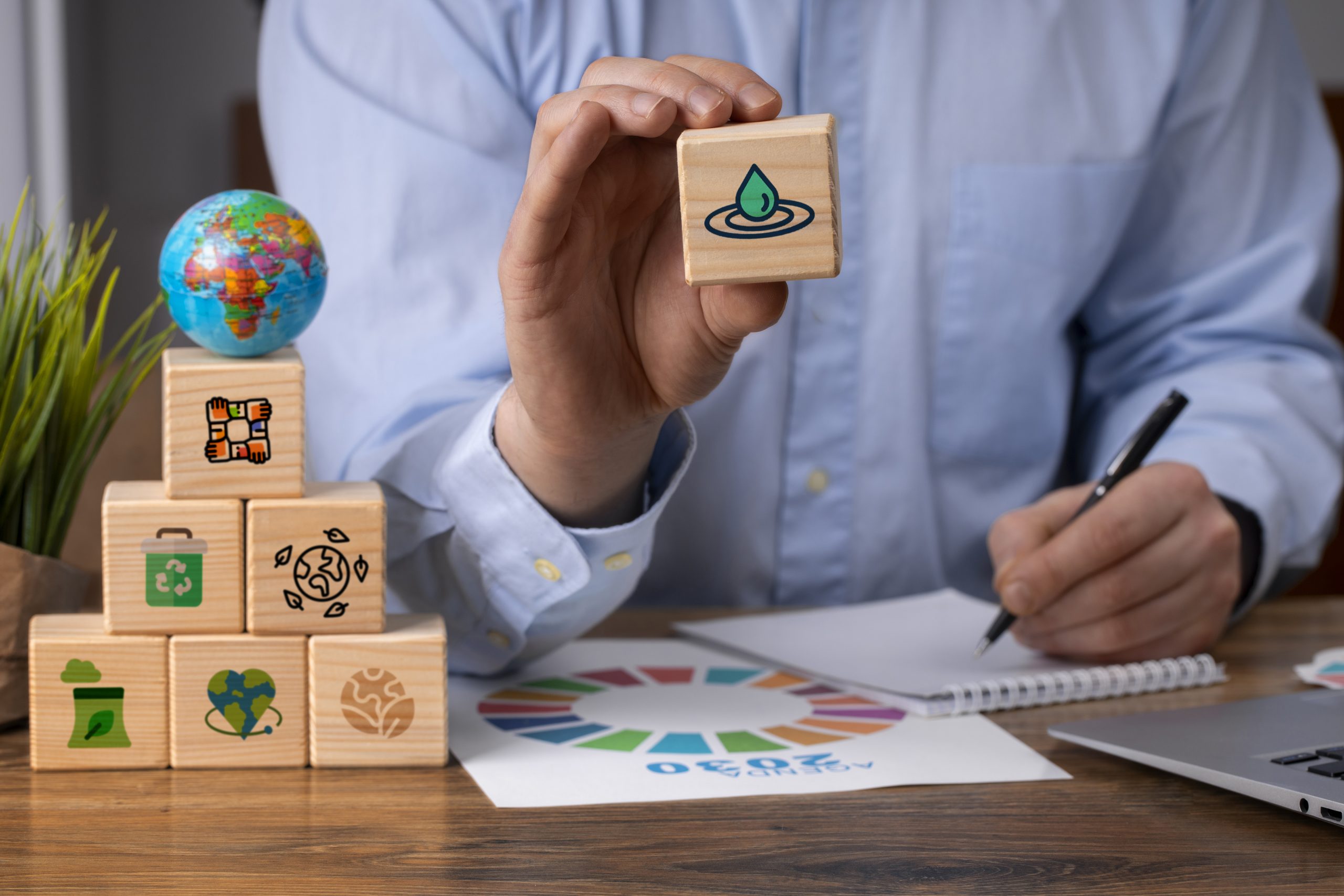
From Classroom to Global Action: Why Schools Must Teach the SDGs
According to the 2011 census of India, there are 253 million children between the ages of 10 and 18 in India, and roughly 250 million of them are attending school. Considered the backbone of our country, this population embodies both immense potential and considerable exposure.
School is the only place where their potential can be channelled and exposure can be leveraged towards a future fulfilling personal, national and global aspirations.
Reviving of school education
Long gone are the years when students were only assessed on their ability to remember and memorize, long gone are the years when students were limited to the information provided in their textbooks. In the era of digitalisation, students have access to the world, and they are aware of all the things happening outside their classrooms. According to Vygotsky’s social development theory, social interaction and cultural context play a significant role in the development of a child’s cognitive functions like thinking, attention, memory, reasoning etc.
New-age school systems need to be equipped with all the intellectual properties which cater to student’s enriched social interactions and cultural context. One of the best examples which blends Vygotsky’s social development theory with new-age education is sustainable development goals designed by the United Nations.
What are SDG goals?
In 2015, as a part of the 2030 agenda for sustainable development, The United Nations came up with 17 global objectives known as sustainable development goals (SDGs), these include no poverty, climate actions, health and well-being, zero hunger, gender equality, clean and affordable energy, preservation of different species and many more such objectives.
Significance of teaching sustainable development goals in school!
– Global Citizenship
What enables an individual to be a global citizen is their intent towards the togetherness of everyone. When one starts sharing concerns of someone else irrespective of any border, language or nationality, they are on the right track to be a global citizen. Sustainable development goals set students from a young age to broaden their perspective, initially through awareness and then through execution.
– Social responsibility and ethical values
Humans are social beings, we like to interact, interfere and interconnect with fellow elements of society, that might be a fellow human being, any other living species, historical architecture, fashionable clothing store, etc. We are consuming these elements as per our needs or wants, not realising the limitations of their offering. Sustainable development goals such as responsible consumption and production (SDG 12), life below water, and life on land ( SDG 14 & 15) make you realise and reflect on your actions. Such ideas are important to share among students from a young age, for them to become socially responsible.
– Align education with global issues
Information in isolation is not productive towards child development, it needs to be backed up by context, and that is what makes information into knowledge. Students should be taught about the significance of the education provided to them and what can be better than having a universal significance. For example, climate action (SDG 13) can be leveraged to teach many topics from environmental studies, similarly with reduce inequality (SDG10) can be leveraged to teach different topics in macroeconomics.
Linking SDGs with academic content can enhance the significance and relatability of the academic content.
How can schools assess students on SDG goals?
Since it’s not a part of a student’s academic curriculum, it could become slightly challenging to design regular assessments to evaluate student’s understanding of SDG goals. Apart from that, it’s challenging to motivate students to go the extra mile and study on SDG’s along with their academic curriculum.
In such a scenario, schools must come up with creative ways to motivate students to take up SDG goals. Such an opportunity is provided to schools by HarperCollins with SDG Olympiad 2024.
About Harpercollins SDG olympiad for schools
The Collins – ARC SDG Olympiad for Schools is a national initiative by Collins India and ARC, with certification from Earth Day Network and the International Sustainability Academy (Germany). Open to students in grades 3 to 9, this Olympiad will rigorously assess their understanding of the United Nations Sustainable Development Goals (SDGs). The examination is designed innovatively to test the knowledge of students and also educate and sensitize them in the process
https://collins.in/sdg-championship/
Such national-level initiatives can be extremely useful in providing extra motivation among students to read about SDG goals and participate in these olympiads. Healthy competition brings out your best version, which is the goal of the Collins SDG olympiad, for students to know about the SDG goals.
The registration process is very simple, kindly visit the website and follow the steps (https://collins.in/sdg-championship/).

